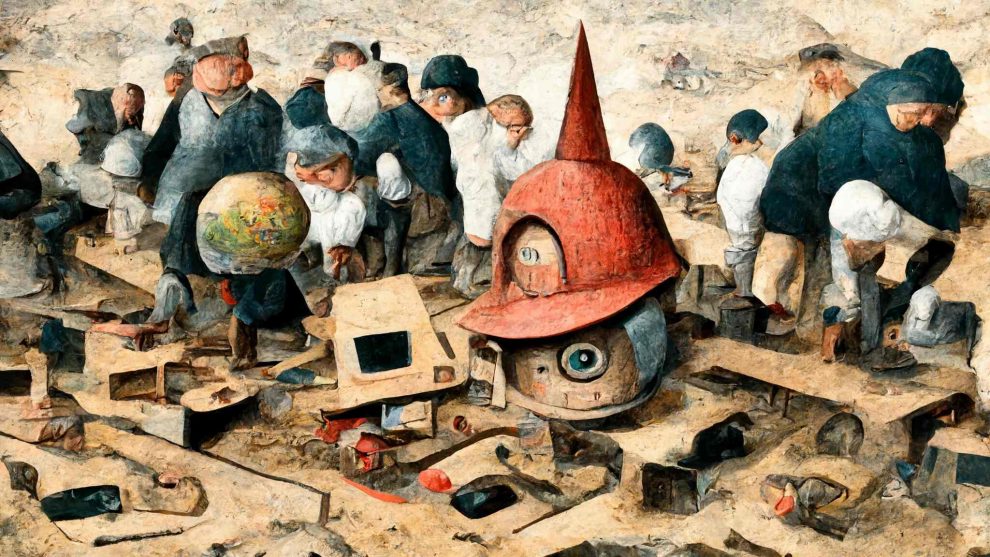Politics is a disaster. In the Middle East the most rancid hatreds explode, turned into missiles that massacre innocents. In Eastern Europe, Ukraine has been transformed into a huge trench trying to stop the expansionist ambition of the Russian neo-Tsar.
Democracy has been devalued to a point where, in the United States, a riot by a far-right legislative sect allowed them to take over the Capitol. In Argentina it is a bad joke. Meanwhile, in Palenque, Chiapas, a strange conclave of presidents from several countries in the process of disintegration occurs due to the massive migration of their populations. Among them, Cuba, Venezuela, Honduras, Nicaragua (which did not arrive) and Mexico.
Politics is so bad that, by confusing popularity with leadership, one natural disaster, Hurricane Otis, was enough to show the fragility of the old liturgy of power. The image of the president with a look of annoyance inside a military vehicle stuck in the mud says it all.
However, the world’s economy will close 2023 with a global production of between 105 and 112 trillion dollars. That is, a growth of 5 percent compared to the previous year. Of course, much of this wealth is generated at the expense of ecocide, exploitation, and the suffering of at least half of humanity.
Wow, the scope of the Chinese curse that gives the title to this space turned out to be accurate; “I hope you live in interesting times.” And yes, indeed, they are.
We will soon reach the end of the first quarter of the 21st century. We will arrive confused and perhaps a little dazed by the media noise and the social effects of the first quarter of a century of the digital revolution. There is still much more that we do not know than what we do know, but I seem to detect two basic lessons:
The first: the concentration of power is a phenomenon that seems impossible to stop. Not only because of the clear trend towards a global economy divided into two large blocks: China and the United States and their respective areas of influence. Also due to the same dynamics of anti-monopoly efforts within traditional capitalism (Made in the U.S.A.), where it remains an enormous paradox that the trial that is being followed in a court in Washington D.C., against Alphabet, the government’s star witness is the C.E.O. from Microsoft.
It is true that in the last two decades Google has been the main winner in the world of the internet. Broadly speaking, it can be stated that all the loss of audiences and advertising from conventional media (TV, newspapers, radio, etc.) has been shifted to that one company. But the very fact that together with the White House team it is Microsoft – along with Apple, Amazon, and Meta (Facebook), one of the technology giants – is not exactly a good sign.
And it is less so, if one considers the fierce opposition of large private economic groups against the efforts of the Federal Communications Commission (FCC) to make communications related to the digital world – the Internet and what arises from it – be considered as utilities (a kind of common good, such as electricity or drinking water) and not as a commodity (a raw material, such as oil or agricultural products) and therefore must be strictly regulated to guarantee their neutrality.
The second is even simpler: technological advance itself seems condemned to remain tied to the dynamics of this savage capitalism in which we have had to live. From the issue of vaccines that recently saved tens of millions of lives, to more swampy terrain such as that of the so-called “artificial intelligence”, which until now is more of a striking label to refer to the significant increase in the capacity of process data (computation) in relation to what we use today.
If both hypotheses are correct, more inequality and more social resentment can be expected. In that context, I cannot deny a small glimmer of optimism in the face of the fact that, despite the political chaos, the global economy continues to grow.











